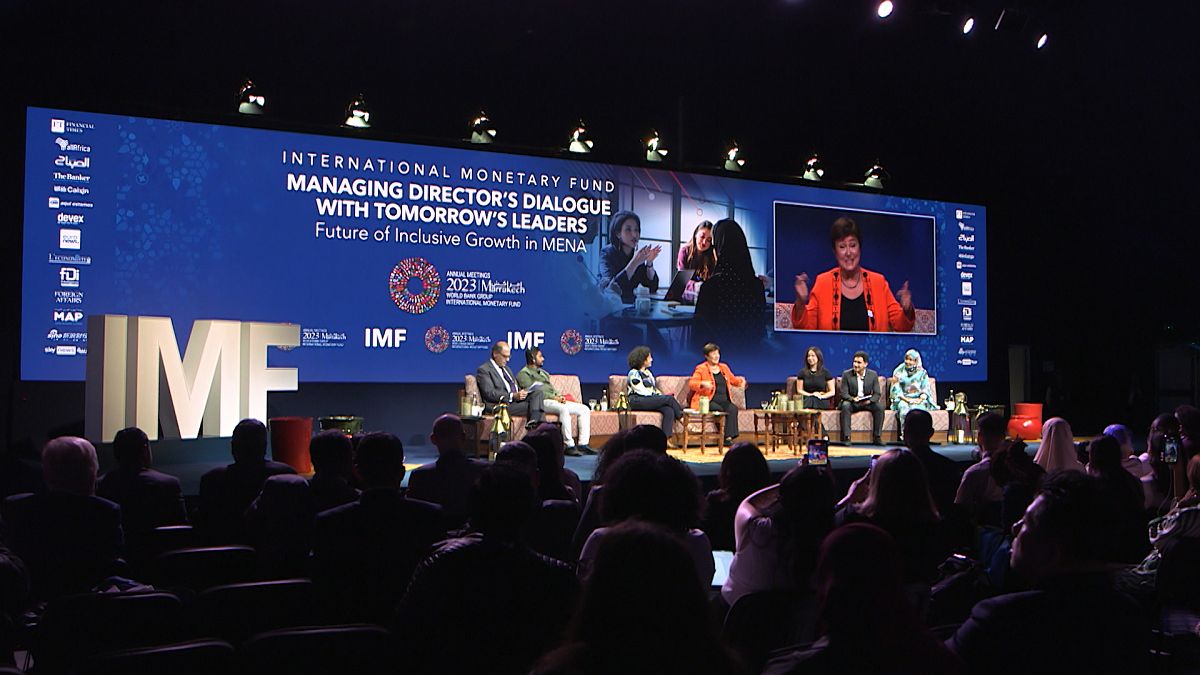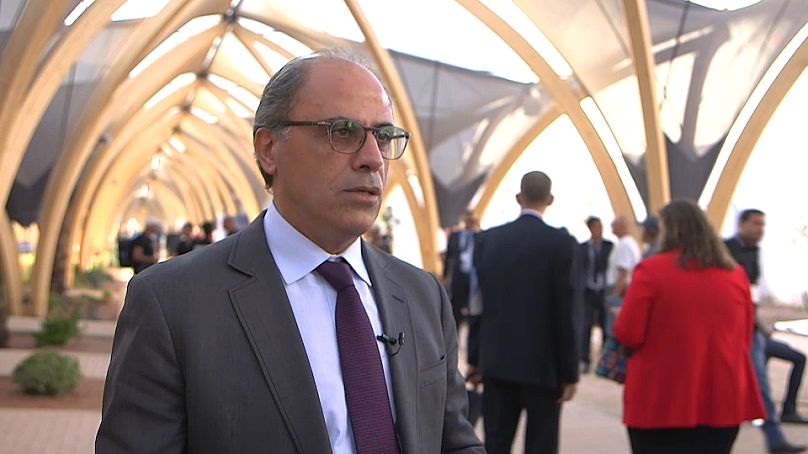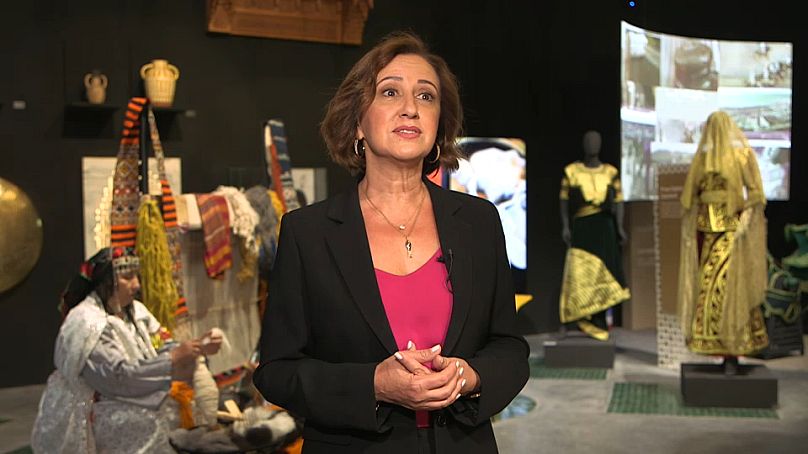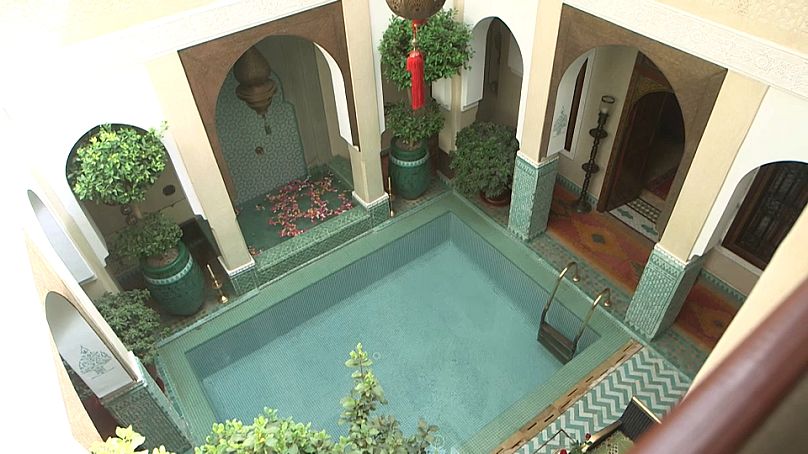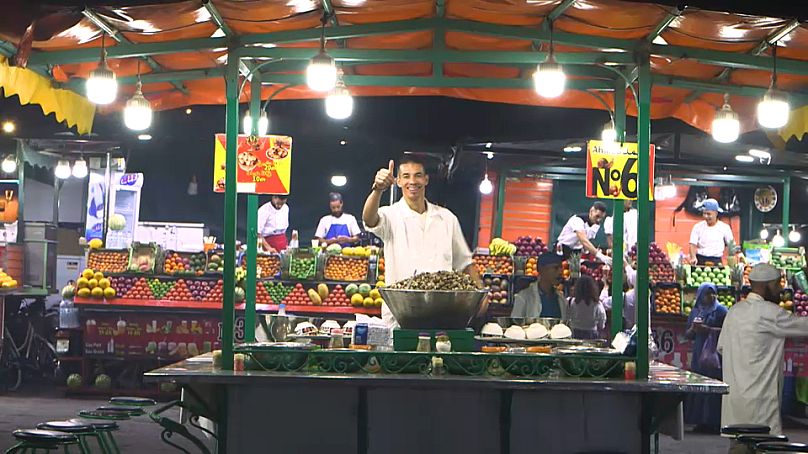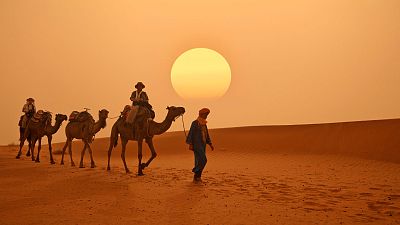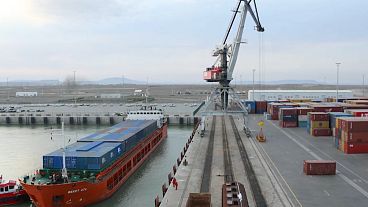Morocco proved its resilience during the devastating earthquake in September. Now, the country is looking to sustainably expand its tourism sector ahead of the 2030 FIFA World Cup.
Marrakech hosted this year's International Monetary Fund (IMF) and World Bank Annual Meetings, an event which drew over 10,000 people to the city. It is only the second time that an African country has hosted the yearly discussions between the two international financial institutions.
Morocco suffered a devastating earthquake in September, but the country remains determined to move forward with tourism as its driving force.
In the aftermath of the quake, questions were raised about whether the location for the Annual Meetings should be changed. But the IMF and World Bank chose to stick with Marocco and stand by the Moroccan people, who have once again shown resilience in the face of tragedy.
“What we saw over the last four weeks, testified that the authorities as well as the civil society in Morocco, were able to build back very fast and this is something that also we wanted to underline with these annual meetings," explained Jihad Azour, the Director of the Middle East and Central Asia Department at the IMF.
"We had the opportunity to visit the affected area and it's very impressive. We saw students back into schools, in different forms but they are studying again.”
Tourism at the heart of Morocco's ambitions
Morocco is one of the world’s top tourist destinations. In 2022 the country welcomed around 11 million visitors.
Nearly 550,000 people are directly employed in the tourism sector, which represents 15% of the total working population.
Fears that the earthquake would stem the flow of tourists have been quickly allayed. More than 960,000 tourists visited Morocco in September 2023 - up 7% compared to September 2022.
“It is crucial to communicate to the world that the situation is more than under control, that we are back to normal life," said Fatim-Zahra Ammor, Morocco's Minister of Tourism.
"In terms of arrivals, we have been monitoring reservations and cancellations and frankly we did quite well. What was also great is that the tourists that were in place at that time in Morocco started sharing on social media their testimonials about the real situation and that really helped us a lot to convey what was really happening in Marrakech."
To date, Morocco has welcomed a total of 11,1 million tourists in 2023, surpassing the figures for the entire year of 2022
Morrocan authorities see the increase in visitor numbers as a show of confidence - and a stamp of approval for its immediate post-earthquake response.
“We believe that the future is bright for tourism in Morocco. We have a strong vision which is to double the number of tourists in Morocco by 2030, which is around 26 million visitors. We are re-shifting our offer around experiences that the traveller can [enjoy the] beach and sun, ocean waves or culture or gastronomy. So the offer is built around experiences rather than destinations," Fatim-Zahra Ammor told Focus.
The annual meeting gave a significant boost to Marrakech's hospitality sector. Aside from its big hotels, the city has gained a reputation for its Riads.
These multi-story homes centre around an open-air courtyard with a fountain - and belonged to the wealthiest citizens and merchants. Many have now transformed into boutique hotels.
“These days, this week, we have received a lot of tourists that came for this conference which is giving mobility for our economy progress," revealed Wadia Bejouj, a hotel manager in Marrakech.
"There are lots of events that Morocco will organise in the future that I am sure will bring more hotels that can accommodate all the events especially the World Cup 2030”.
The country is aiming to double the number of tourists by 2030, when it co-hosts the FIFA World Cup, alongside Spain and Portugal.
Climate change is also a major concern and is at the forefront of Morocco's new plans that will shape the future of the tourism industry for decades to come.
In the Souks – or markets - of Marrakech, hundreds of tourists can be seen taking in the fabulous sights, sounds and smells.
“My mother said it is the most beautiful country she ever visited. So, of course, I also had to come to see for myself," said tourist, Anne Sars.
"It is beautiful. I have been here only one day. We landed in Fes and immediately went to Casablanca to a beautiful restaurant with belly dancers and live music. Then we came straight here the next day. It's busy, it's lively, it smells good, I love it here, it's really great!”
“People are so friendly. From the minute we got here, we had help, explaining everything. The food has been delicious. Just the whole culture is so different to the European lifestyle but so fascinating, so enjoyable, so far so good," said fellow tourist, Christina Spann.
